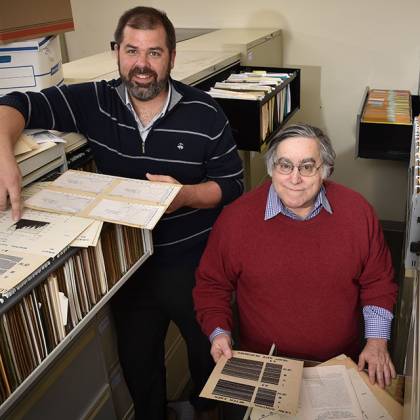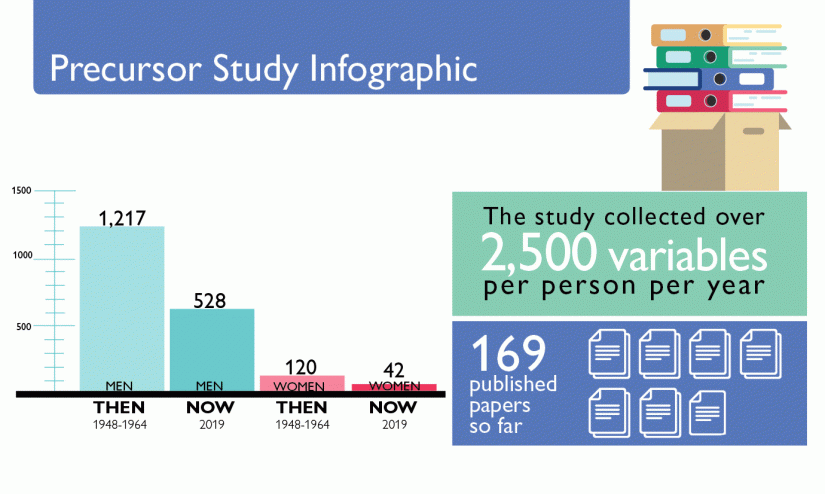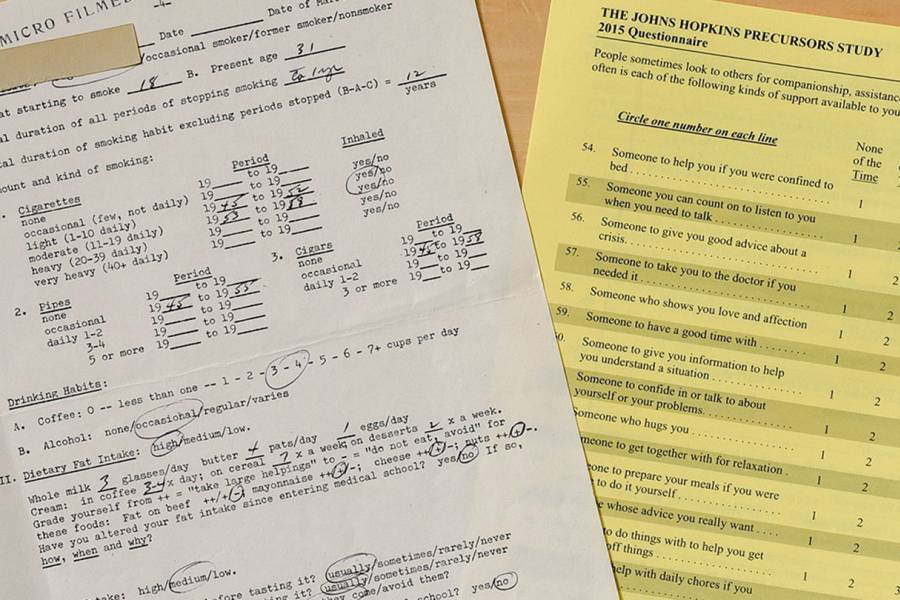Each autumn, 88-year-old Simeon Margolis fills out the multipage Johns Hopkins Precursors Study as soon as it arrives in his mailbox.
The task, which takes about an hour, isn't particularly exciting, admits the retired endocrinologist. "It's all about me," he says with a self-deprecating shrug. "How interesting can it be?"
Yet he dutifully puts pen to paper, as he has done every year for six decades. In doing so, he joins hundreds of other Johns Hopkins University School of Medicine graduates, who, together, contribute to one of the world's oldest and most detailed longitudinal studies still collecting data.

Image caption: Researcher Alden Gross, left, and study director Joseph Gallo, right, with some of the documents amassed over the decades.
As a medical student in the 1950s, Margolis was both a participant in the Precursors Study and a volunteer who helped its creator, Caroline Bedell Thomas, collect detailed information about other participants. Margolis remained at Johns Hopkins after completing his residency there in 1965 and served in leadership roles that included associate dean for academic affairs and associate dean for faculty affairs.
Thomas, then an assistant professor in physiology, was in the early years of an ambitious longitudinal study she had devised, which would follow Johns Hopkins medical students who graduated between 1948 and 1964. Her original goal was to determine precursors of heart disease, but the study wound up being even more valuable than that.
Among its many findings, the Precursors Study, now in its 71st year, has ferreted out links between obesity and diabetes, and between depression and heart attacks.

Not knowing which metrics would prove important, Thomas measured just about everything she could think of, including cholesterol levels, alcohol intake, and blood pressure. She even made participants plunge their hands into ice water, and smoke cigarettes, to measure their physiological reactions.
"Those were the only two cigarettes I ever smoked," says Margolis, whose puffs contributed to several published papers pointing to what is now accepted knowledge—that smoking contributes to cardiovascular disease.
As the participants aged, the questions changed. Current surveys probe quality of life, loneliness, resilience, retirement satisfaction, and a concern for future generations, says study director Joseph Gallo, a professor in the Johns Hopkins Bloomberg School of Public Health, with a joint appointment in behavioral health and psychiatry.
Thomas was 82 when she retired in 1985 and died in 1997. But her Precursors Study lives on because participants such as Margolis, now in their 80s and 90s, continue to fill out the questionnaires they get in the mail each year.
This article originally appeared in Dome.
Posted in Health









